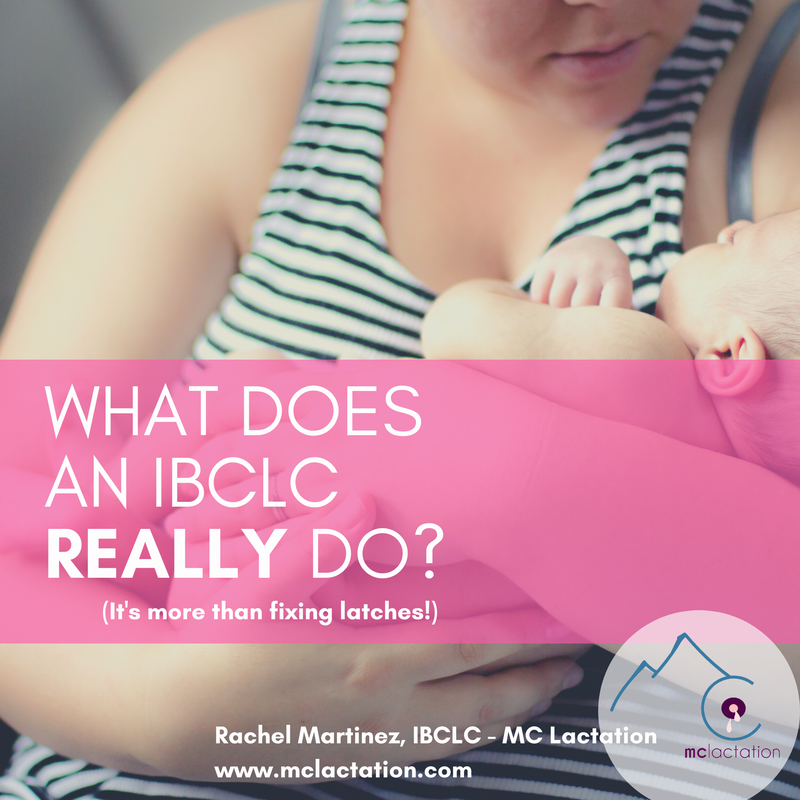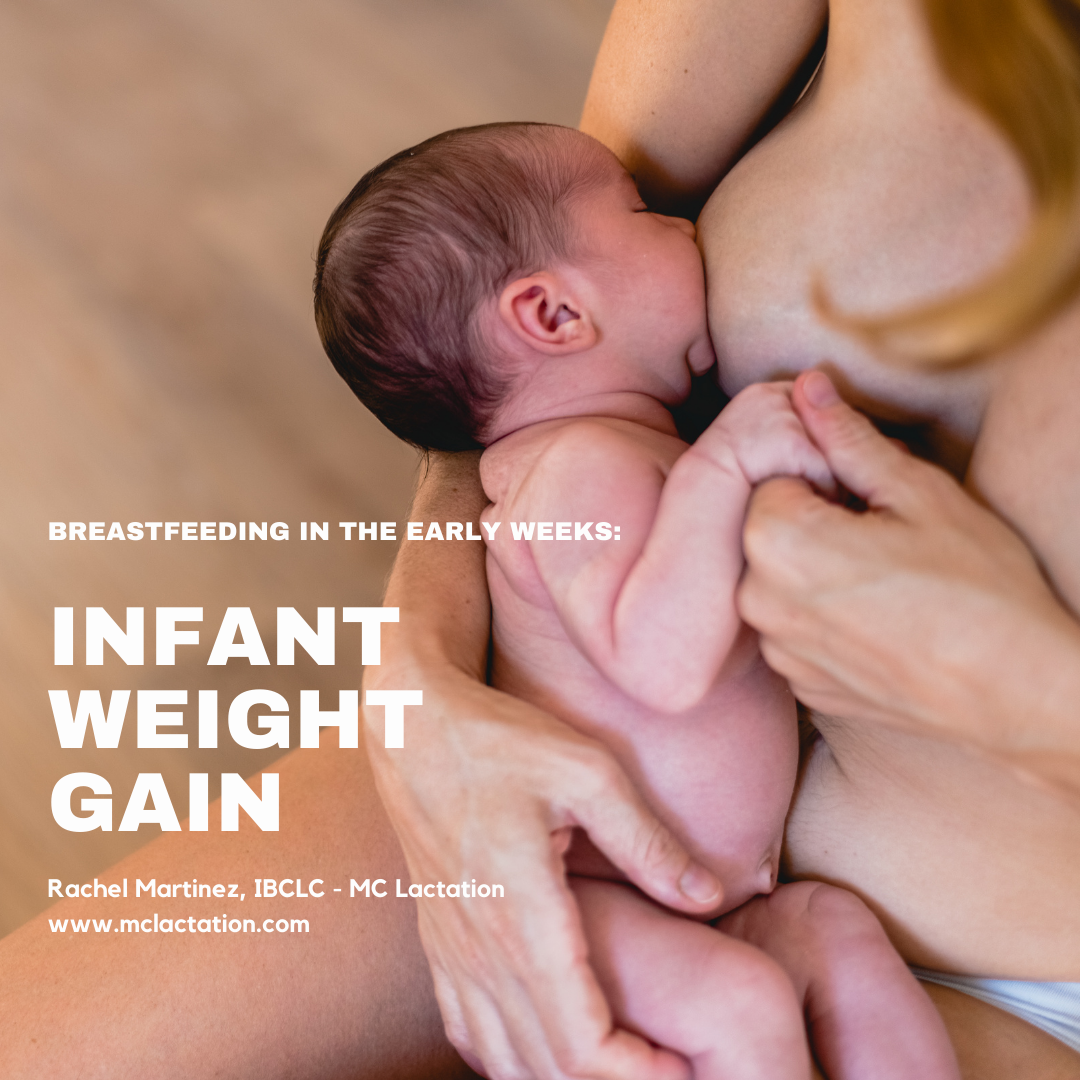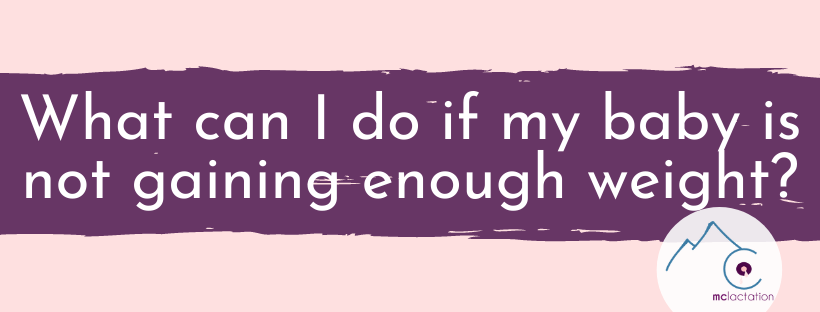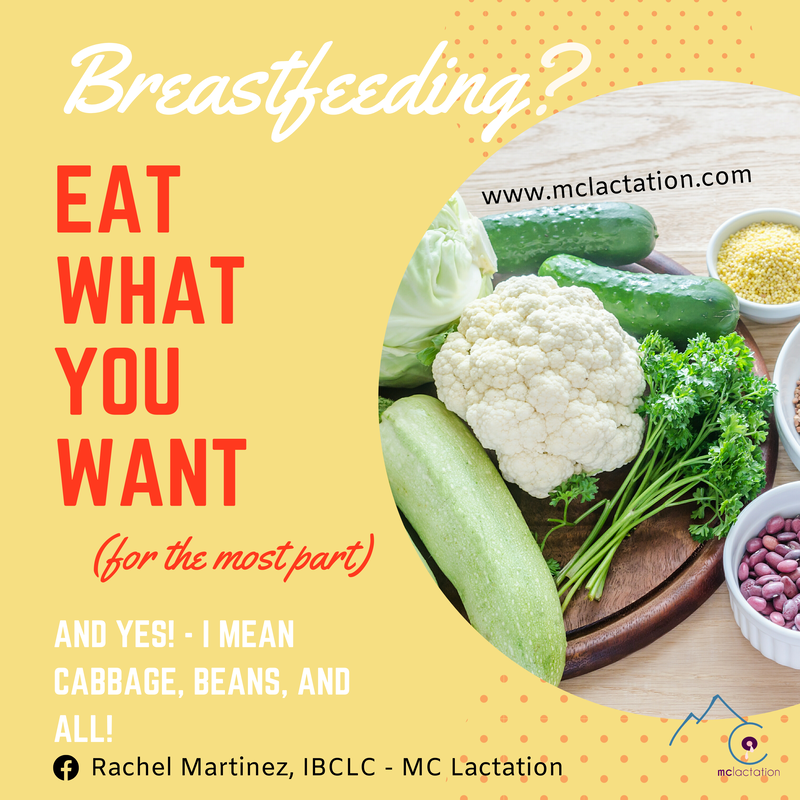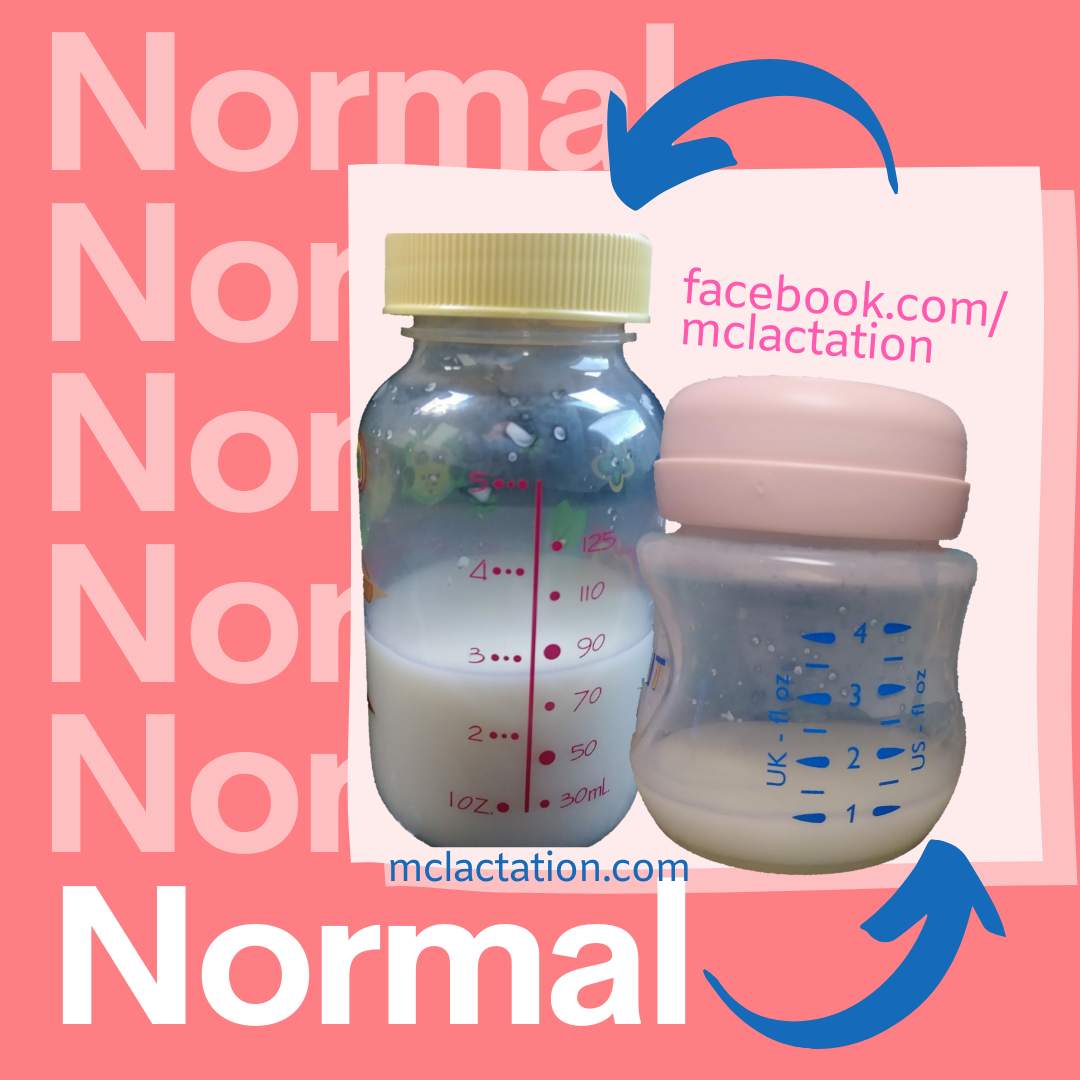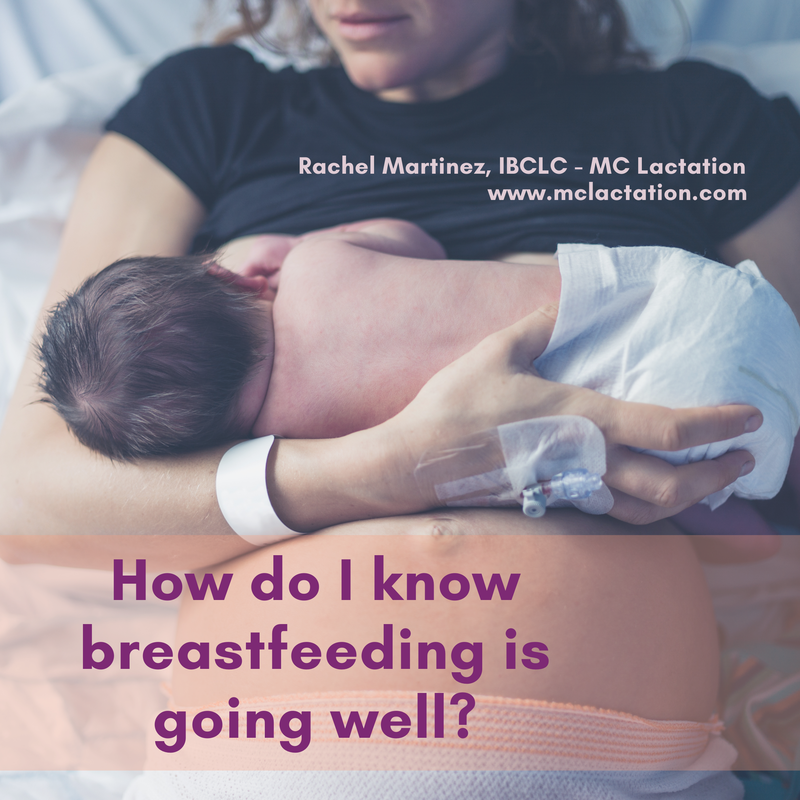|
Over the years, I have written and discussed and made all kinds of graphics about how a lactation consultant can support families through breastfeeding. Sore nipples? -We can fix that! Fussy baby? We’re all over it! Low weight gain? Low supply? Oversupply? Tongue, lip, buccal ties? We. Have. Got. You. Covered.
And you know what? IBCLCs do deal with all of these issues. We go through a lot of training and clinical practice before even sitting for our board exam because we want to dive into all of the ways we can support you in feeding your baby. We make feedings plans. We make sure babies are growing and thriving. We make sure parents are met right where they are and that they are getting the support they need to navigate feeding their baby. Some of these feeding issues aren’t always quick fixes, and that's OK too. We’re in it for the long haul. BUT, as I sit here thinking today, while all of these things are indeed true, they aren't the bulk of what an IBCLC (a good one) really does. So what does an IBCLC really do? An IBCLC listens to you. Of course we listen to you. I haven’t met any family yet that has the exact same needs, wants, or past experiences as the family I saw before them. It’s in really listening to you that I can hear your needs, wants, and goals for feeding your baby. An IBCLC asks questions (lots of them!) We do this for several reasons. We want to know who you are. We want to know the things you care about and the things you are concerned about. We also want to know what might impact the way you want to feed your baby. I will ask a ton of questions, and I will get some really great and insightful answers. A good IBCLC is honest and unbiased. We listen and we ask questions so that we can have the best understanding of how to navigate feeding your baby in a way that works for you. We want your baby to be growing and thriving, and we want to help you find the best way to get there. A good IBCLC will give you the information you need to make an informed choice about how you will feed your baby. These plans may include breastfeeding, bottle-feeding, pumping, supplementing, using donor milk, using formula, and so on and so on. It will never be a breast is best or fed is best answer. It will be an informed and supported is best choice. No one feeding plan will ever work for all families. This brings me to: An IBCLC will create a feeding plan that works for you. Sure, we could check off boxes in a care plan and hand it out to everyone we see, but that just won’t work. Different people have different needs, and this is something a good IBCLC will take into account when working with you. And, An IBCLC will adjust your plan as you go. Sometimes everything just clicks and works so well after an appointment, and that is a wonderful and joyous feeling for everyone! But sometimes feeding situations can be tricky or need lots of support and checking in. We do that too. When something isn’t working, we change it. We look at your goals, and we make a feeding plan that works. There is success found in all kinds of breastfeeding situations - parents who want to exclusively breastfeed - moms who want to pump and feed, families who see that combo feeding is what works best for them. All of these situations can work, and they can work well. When do they work best? When families are informed and involved in the feeding process. And that’s what we do.
0 Comments
Your beautiful baby is here, and you have decided to breastfeed! While you feel like feedings are going well, you want to be sure that your baby is getting plenty of breastmilk to be happy, growing, and thriving. Well, since you aren't exactly measuring what's going in, how can you tell? One way to know that your baby is getting plenty of milk is that your baby is gaining weight appropriately. After an initial weight loss following birth (see an explanation below), your baby should be gaining steadily and back to birth weight by the time they are about 10 days old. Once your baby is gaining, they’ll continue to gain about 5 -8 ounces per week or so (sometimes more) until they are closer to four months old. In the early days, your baby may lose a bit of weight following birth (particularly if you have received IV fluids), and this can be OK. If they begin to lose too much weight, this is a sign that feeding may not be going as well as it could be. There might be a simple fix like adding in more feedings or adjusting baby’s latch, but this is a great time to find support so that you can meet your feeding goals. A 5-7% weight loss can be normal. 10% means let's pay attention to what’s going on here, and anything more says we need to see what baby is doing and make a feeding plan that works for the family. When a baby is not gaining weight as well as he should be, it does NOT mean that you are doing something wrong. Even if you have breastfed your older children, this baby is new to breastfeeding, and you are new to breastfeeding this baby.
As I mentioned above, there may be a very easy fix for weight gain problems. Sometimes very sleepy babies have trouble waking and cueing to feed. Sometimes baby is not latching in a way where he can effectively get plenty of milk. Working with an IBCLC can help you find the root of the feeding problem, and the two of you can work together to create a feeding plan that helps you meet your breastfeeding goals. For more information on how to know breastfeeding is going well or when to ask for help, head over here. Are you super confused about what kinds of foods you can eat while you are breastfeeding? Are you looking for a food that may increase your supply? Decrease your supply? Are you concerned that something you are eating is causing problems with your baby?
You’ve come to the right place. The short answer is, there is no one size fits all approach when it comes to breastfeeding and the foods you eat. For most people, you can continue to eat whatever you normally enjoy in your daily diet while you are breastfeeding your baby. Even cabbage? Spicy foods? COFFEE? - YES! Most people are able to eat their normal, varied, diet while they breastfeed their babies. There is a common misconception that enjoying certain foods will automatically contribute to a gassy, fussy, or colicky baby. But, the foods that can make YOU gassy just don’t enter breastmilk the same way. What’s more is that some of these awesome foods (garlic, anyone?) can transfer flavors and smells to your breastmilk that may keep your baby at the breast longer AND make the transition to a variety of solid foods easier! That being said, while most people can eat their regular diet, foods can sometimes contribute to issues with your baby, and you should never feel brushed-off when you know something just isn’t right. What if you fall into the category of not most people? You may feel like you have been doing everything right, and your supply just is not quite enough. Or you have an oversupply that you need to tame. You may notice that your baby is not happy when you eat certain foods, or your baby may even show signs of food sensitivities or allergies. So what can you do? If you are concerned about milk supply: 1. Make sure the functions are working well. Before we jump to turn your life and diet upside down to fix breastfeeding, let’s take a look at how things are working. Did you experience any breast changes during pregnancy? Are you offering enough feedings or pumping enough? Is there any pain when you nurse or pump? Are you using the right type of pump for your needs? Is your baby feeding well? Is your baby growing well? Is your baby happy? Does your baby have any symptoms related to food intolerance/allergy - these are just some of the questions we can use to get a basic understanding of your experience while you are breastfeeding. Work with your IBCLC to make sure that the function of breastfeeding is working well for you. Everything is working well. Now what? 2. Look for an underlying cause. Again, this is such a personalized approach for each person. For low supply, it may be that a change in your diet can help with things that may contribute to a low supply. There are many hormones involved with breastmilk production, and making sure that they are working well can resolve some issues with low milk supply in some cases. This is where foods and herbs may help. What this does not mean, however, is that you will find a magic food or drink that can very easily fix the tough issues you are facing with low supply. And low supply does exist outside of these circumstances too. Finding a healthcare provider who is knowledgeable in breastfeeding is a wonderful place to start when everything seems to be working well on the outside but you still have a low milk supply. My supply seems OK, but I am concerned that my baby may have a food sensitivity/intolerance/allergy. 1. Again, it seems simple enough, but this is where I go back to first making sure that everything is working well. There are several things that on the surface may make it seem like your baby is having a reaction to food, but it isn’t really the case. If we can cross these things off the list, we can work on making sure your baby is happy and thriving on your breastmilk without having to make big changes to the way you live and eat. I have seen many mothers personally who have been told very quickly to remove dairy or change their diet, and they have an issue that has nothing to do with food that is contributing to a gassy, fussy baby. A lot of the time, these issues are very fixable. 2. Things are working well, now what? So everything is working well, but your baby is still having reactions. Common symptoms of a food issue in your baby are: rash, hives, or eczema on your baby’s skin, congestion, blood or mucus in your baby’s stool, poor weight gain, and/or a baby who is inconsolable or who cannot sleep well. Whenever you have a concern about your baby's health, it's always a good idea to check in with your baby's healthcare provider to make sure your baby is healthy and to make sure you are on the same page. When your baby is having a reaction to a food or foods that you are eating, most people can go along feeding as they normally do while also working to remove any offending foods from their diet. Much of the time, dairy is the big offender, so it’s easiest to start there. If dairy is the issue, many parents notice a difference in their baby within the first few days of eliminating dairy from their diets. If you have removed all dairy from your diet (including hidden dairy) for 2-4 weeks, and your baby is still having symptoms of food intolerance, you might consider removing other foods from your diet one at a time until your baby’s symptoms improve. If you find removing the food does not improve your baby’s symptoms, you may add it back into your diet. Soy and dairy sometimes go hand-in-hand when it comes to babies and food issues, so removing soy may be the next logical place to start. Eggs and corn are other big offenders. You may also decide to start a food journal to make it easier to pinpoint any foods that cause problems for your baby. If you feel confused or unsure, your IBCLC can support you and offer resources along the way. My baby is definitely having food issues, and I am overwhelmed and don’t know where to start. What do I do? 1. Be patient with yourself. On the outside, changing your way of looking at foods and the way you have always eaten can be very daunting. It takes time to learn your new normal, and you have every right to grieve your original vision of simply feeding your baby. The great news is there are so many wonderful resources now that deal specifically with dairy-free (soy-free, peanut-free, and on-and-on) diets that can make this transition a lot easier for you. Reach out to your IBCLC and to your fellow breastfeeders to see how they have navigated this change. They will guide you and support you every step of the way. 2. Know that this is not always a permanent issue. Babies who are sensitive when they are very young often outgrow these sensitivities as they age. In short, if you ever have questions about foods that may affect your supply or cause problems in your baby, reach out to your IBCLC for guidance. It’s great to have a plan in place when you feel overwhelmed and need help. If you are a parent who has pumping needs, chances are you have asked yourself if the amount you are pumping is normal or if it is enough to feed your baby. The answer is, probably!
Both of these bottles of pumped milk in the picture are totally within normal range when it comes to pumping output. And these bottles have expressed milk from *both* breasts combined. The first bottle has close to three ounces, and this milk was pumped to replace a breastfeeding session while mom was at work. The second bottle has about one ounce of expressed milk. This milk was pumped in the morning about an hour after a breastfeeding session. This milk was just being stored to use later. Both of these amounts are appropriate when you are pumping milk. Sometimes it can be shocking, especially for people who are first time pumpers, to see that their milk may not be filling up these seemingly small bottles. But guess what? This milk fed babies, and it fed them exclusively and without supplementation. If your normal is different than this, that’s OK too. Some people respond super well to the pump and have no problem pumping more than several ounces from each breast. As long as that isn’t interfering with your daily routine or feeding goals, you’re good to go on that front! If you have the need to pump for your baby, chances are, if you have a pump that fits your pumping needs, if your flanges fit well, and you are pumping frequently enough, you’ll have the right amount of milk for feeding them. And if you aren't sure about your pump or pumping routine, your IBCLC can guide you to a pump and pumping plan that fits your needs and feeding goals. So what is normal pumping output? Well, if you are pumping in addition to feeding your baby, it is completely normal to pump anywhere from .5-2 ounces for both breasts combined. If you are pumping to replace a feeding session, your output will likely be higher - anywhere from about 2-4 ounces for both breasts combined. Is that enough milk to feed your baby? Yes! Breastfed babies generally take small meals frequently, so anywhere from about 2-4 ounces every 2-3 hours or so is enough milk for most babies if you are giving them expressed milk in place of direct feeding. Some babies do take a little more. It's important that you consider your baby's growth (we love when babies are growing well!) as well as their cues for hunger and satisfaction with feedings. Pace-feeding bottles and using the appropriate bottle nipple is very helpful too. Lactation consultants love to help you feed your baby, and this includes every way that you want or need to feed your baby - breastfeeding, pumping, exclusive pumping, supplementing, and everything in between. If you feel like your pumping routine could use some tweaking, or if you need help figuring out how much milk your baby needs to be happy and growing well, we can help with that. It is way too easy to question yourself when it comes to feeding your baby. Way too easy. Between well-meaning people (and some of them very, very dear to us) and not being able to measure just how much milk your baby is getting when they are latched (and also those 500 feedings per day), you may be left feeling really unsure about how breastfeeding is going or if your baby is even getting enough milk. While you can’t really measure what’s going in there during a feeding without a super precise scale (and even if you DID have a scale, most people really don’t need them to make sure feeding is going well) there ARE some pretty great ways to know that this breastfeeding gig is an OK deal. And before you read all of this, know that if you see signs that feeding isn’t going well, that doesn’t mean you aren’t the most spectacular parent on earth or that breastfeeding just won’t work for you. It means you’ve done an excellent job reading your baby, and you know when and how to ask for help. 1. Does breastfeeding hurt? I know that many veteran breastfeeders will say that breastfeeding just hurts for the first couple of weeks and that there’s no way around it. And for a lot of people, it does! But it doesn’t have to hurt. In fact if you are having pain that is more than some initial soreness when you are feeding your baby, we can take a look at that. It can be as easy as finding a more comfortable position for your baby or helping them control the flow of your milk. The point is you do NOT have to suffer through terrible pain just so that you can breastfeed. 2. Is your baby peeing AND pooping? When your baby is born, they will probably be weighed right around birth or within a day or so, and they might not have another weight check for a week, maybe more. So how will you know your baby is getting enough milk if you can’t be sure they are gaining weight just yet? Pee. And poop. A bunch of it. Here is the thing though, it is a common misconception that if your baby is peeing, everything is good! That breastfed babies can go 10 days to 2 weeks without any poop and be perfectly fine. While some older babies may begin to space out their stools (and I would really like for them to continue stooling regularly), little babies, new babies need to poop. Peeing will tell you that your baby is hydrated, but pooping will tell you -hey, my baby is PROBABLY getting enough fat and calories to grow well. So if your new baby is not pooping at least one time per day of life (once on day one, twice on day two, etc), and then at least 3-4 times once your milk increases in volume (around day 4 or so), let’s get that checked out. It is so much easier to fix things when we spot them early as opposed to waiting. 3. Is your baby gaining weight? Babies need to gain weight. I hear in online groups all the time about how some babies are just small, and yes, that’s true! But even small babies need to follow their own growth curve. This means that babies need to gain weight. Not just a little over time, and not just maintain, but they should be gaining well. What is normal gain? After an initial weight loss following birth (see an explanation below), your baby should be gaining steadily and back to birth weight by the time they are about 10 days old. Once your baby is gaining, they’ll continue to gain about 5 ounces per week or so (sometimes more) until they are closer to four months old. In the early days your baby may lose a bit of weight following birth, and this can be OK. If they begin to lose too much weight, this is a sign that feeding may not be going as well as it could be. Again there might be a simple fix like adding in more feedings or adjusting baby’s latch, but this is a great time to find support so that you can meet your feeding goals. A 5-7% weight loss can be normal. 10% means let's pay attention to what’s going on here, and anything more says we need to see what baby is doing and make a feeding plan that works for the family. 4. Is your baby satisfied after feedings? Does your baby wake to feed for you at least 8-10ish times per day? Does your baby actively drink while they are latched (not just kind of suckle there)? Does your baby have wakeful peaceful periods between feedings? Chances are, feedings are going well. Throw in some cluster feeding, usually in the evening hours, and you have a very normal baby. Would you describe your baby’s feedings as long and endless? Does your baby latch on and fall asleep quickly? Do you have to always wake your baby to make sure they are getting in enough feedings per day? Feeding might be going OK, but I bet we can make some changes to make sure your baby is feeding effectively and feeding well. 5. Do you feel like something is just off? Something changes when you become a parent. Parents are really, really good at reading their babies. If you don’t feel sure about how feeding is going, that’s OK. That’s why we have La Leche League and Breastfeeding USA and WIC peer counselors and Baby Café. That’s why we have IBCLCs and CLCs and breastfeeding helpers. You’ve got support here, and if you feel like something isn’t quite right, that’s your gut telling you it’s time for some help. Sometimes it’s just a quick call to know that something is super normal. Sometimes it’s to fix a feeding problem that’s there but that you just couldn't put your finger on. You’ve totally got this, and we’re here to help. |
Archives
April 2021
Categories |

